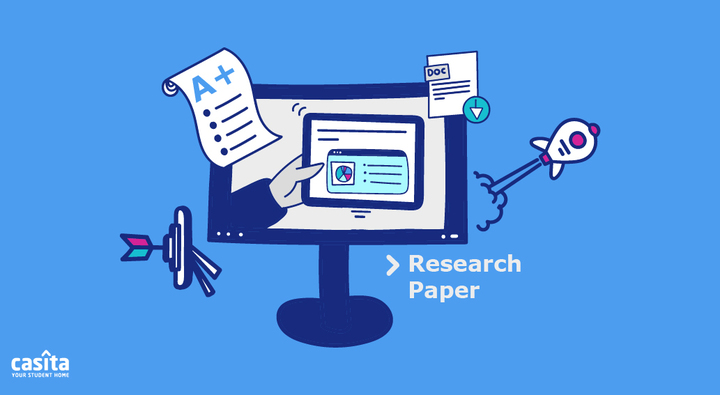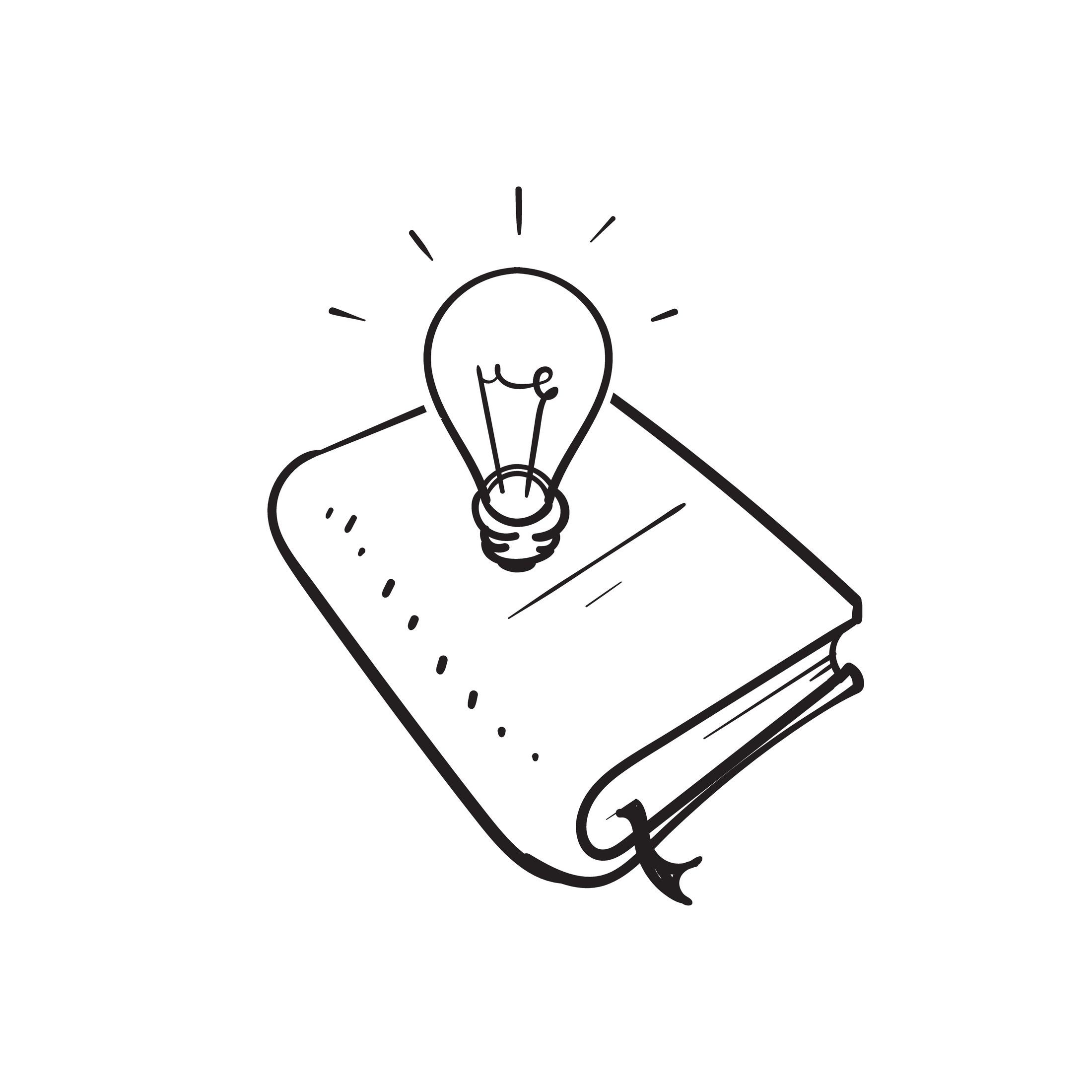Tips on Writing an A+ Research Paper
Tips and Advice
6 mins read
Share

Updated at: 25 November, 2025
Published at: 29 January, 2023
By Hagar Samir
Tips on Writing an A+ Research Paper
Tips and Advice
6 mins read

Updated at: 25 November, 2025
Published at: 29 January, 2023
By Hagar Samir
Share
Writing a research paper can be challenging, especially when it’s the end of the semester or the whole academic year! For many students, it means sleepless nights, stress, and a lot of work in order to get it done before the deadline. To write an excellent research paper and stay motivated throughout the process, you have to do some simple things that will definitely change the paper’s dynamic!
We understand the pressure students feel whenever they’re given an assignment that requires a lot of research, not everyone likes doing that, and that is totally okay! However, there are certain things you can do that can help you save so much time and end up getting an easy A+!
Tips on Writing an A+ Research Paper
If you have an idea in mind, or you’re given a certain idea that you have to write about, you’re halfway there! Having the idea means that you already know the approach you’re going to take, which will eventually lead to a well-written paper. Let’s take a look at some tips that will help you get an A+ in your research paper!

1. Understand the Assignment
The first step you have to take is to fully grasp the idea presented to you to avoid any misunderstandings or writing something off-topic! You should also know the word count, the format of the paper, and the deadline.
Knowing and understanding these details before you start means you won’t have to go back and redo any work; you will be minimising your work as much as possible! If you have any questions or if something is unclear, reach out to your supervisor first.
2. Research the Topic
Researching the topic beforehand is very important; you have to gather as much information as possible in order to be able to write about this topic. While researching, don’t go for mainstream or unreliable sources to get your information. Instead, use academic websites like Google Scholar. This will help you make sure that all the information you have is correct!
You can also use books and articles from your course readings, the university library, or printed scholarly works from other offline libraries to help you. These sources are academic and are written by reliable scholars who will guarantee you fully comprehend the information and grasp the ideas in order to write your paper!
3. Brainstorm
Now that you have the topic and the sources, you can start brainstorming ideas for your research paper! You can start by writing whatever comes to mind on a blank sheet of paper or a document. Think about what you want to write and what approach you want to take while writing this paper!
The importance of brainstorming and documenting these ideas is that you have a reference and you gathered everything in your head so that they don’t get lost or you forget about them! You can omit some ideas later or not use them at all, but now you have the option to use them if you find them important when you start writing!
4. Make an Outline
Creating an outline means you’re almost there! After brainstorming your ideas and deciding on the flow of the paper, it is important to make an outline so that you know what you’re going to write. You have to start with an introduction and a thesis, a body, and a conclusion. The outline should be laid out in a logical order; you should also include supporting ideas so you can see how the essay will flow!
An outline will help you think through your topic carefully and organise it logically before you start writing in order to make sure you won’t leave out anything while you’re writing! This outline will serve as a guide for you while writing and for the reader when they read the paper.
5. First Draft
One of the most important tips that some students ignore is writing a first draft. We know it might seem boring and redundant, as you’re already going to write a final paper, but it’s very helpful! A first draft, also known as a rough draft, is the very first version of a piece of writing after the outline. The first draft is supposed to be messy and amenable to change, so don’t panic if you find your paper full of mistakes; that’s totally okay!
The first draft can also open your eyes to changes you need to make in your outline, or you might even realise that the transitions didn’t work the way you wanted. A first draft will help with that. The outline works like a guideline, so it’s not a hard rule that you should follow!

6. Have Someone Edit Your Paper
After you write the first draft, it is important to have someone else look at it with a fresh pair of eyes to evaluate it. It’s okay if the paper needs editing; that is the purpose of a first draft! When your professor, scholar, or even friend looks at it, they will read it for the first time and maybe give you ideas or suggestions that you can use to better your paper!
After you get feedback, whether good or bad, it will be time for the final draft, where you write everything in order and with coherent ideas. If this research paper is graded, some professors or scholars will grade you for that final draft and not the first one, which will guarantee that you get a higher mark!
7. Avoid Using Tricks on Your Paper
We’re sure you’ve heard the “if you want to elongate your paper, there are a few tricks that you can follow!” before more than once; please don’t! Using a slightly different font that is similar to the requested font but larger or changing the spacing to make it slightly larger than requested will probably be noticed and get you in trouble!
A long research paper can be a lot, which is understandable, but you should bear in mind that if you do these tricks and get caught, you can fail the assignment or lose a lot of marks, which is something you want to avoid!
8. Separate Your Notes From Your Sources
While writing your paper, you have to know and separate between your own ideas and what you read from your sources. Separating them is the best solution because you will be avoiding plagiarism! It can also be done unintentionally, which is why you should check your paper for originality and make sure your paper did not plagiarise any other sources.
Plagiarism is a serious issue that could result in your paper being completely dismissed! This is why it is important to cite all your sources at the end of your research paper and use paraphrasing, summarisation, and quotations!
9. Accept Criticism
Constructive criticism can be harsh and discouraging, but it is a crucial part of the process if you want a well-written research paper! Do not think that this criticism is to bring you down or claim that you are not good; it is simply to make you better! Always be open to new ideas and changes, as it will make your paper one of the best!
If you think that someone’s feedback is not suitable or not aligning with your ideas, you can ignore it. You don’t have to listen to everything that is being said to you, but always consider the change in order to have a great outcome in the end!
If you follow these tips thoroughly, it is guaranteed that you will get a great grade and a lot of praise! Writing a research paper is not the easiest thing in the world; it puts so much pressure on the researcher in order to master writing the paper, but it’s all worth it when you find yourself finally submitting your paper!

Frequently Asked Questions
What is the best way to avoid plagiarism?
The best way to avoid plagiarism is to always check with websites like Grammarly, Chegg, and EasyBib. These websites will let you know whether there is a plagiarism percentage or not! You can also try to paraphrase the sentences, quote, or summarise them as a way of changing them a little!
What are the most common problems in writing a research paper?
The most common problems are the structure of the paper, a vague research question, grammar, and plagiarism. All of these problems can easily be avoided if you follow certain steps and have someone proofread your paper after you finish it in order to avoid these issues!
What are the topics you should avoid while writing a research paper?
You should always try to stay away from played-out topics, personal stories, topics that are too narrow, topics that might be offensive, and controversial topics. You can also make sure that you have enough reliable sources on a certain topic before writing about it because topics with unreliable sources are usually rejected as well!
What type of words should not be included while writing a research paper?
Words that are informal, unsophisticated, vague, exaggerated, or subjective should not be used while writing a research paper. You should always use academic, formal, and sophisticated words that show how much knowledge you have! Always try to appear as professional as possible in your writing.
Tips and Advice
By Hagar Samir
Share
Tips and Advice
Updated at:
Published at:
By Hagar Samir
Share


